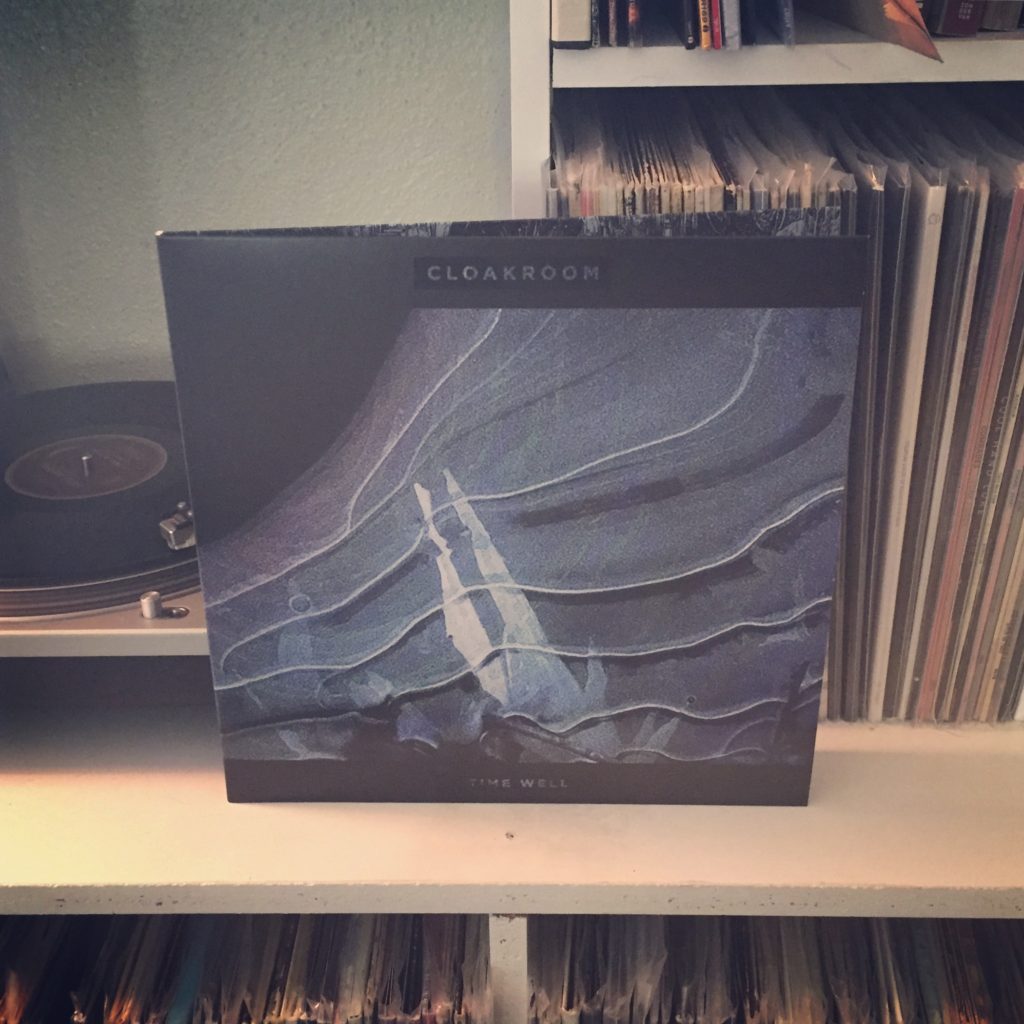
As a guitarist, I sometimes bemoan modern music’s shift away from the instrument. Even modern guitar legends like St. Vincent’s Annie Clark have pivoted away from a guitar-centric approach.
But then, you have Cloakroom (who apparently live pretty close to me).
Time Well is the second release from the “Northwest Indiana” (but where though). It is a piece of doomy shoegaze that scratches my itch for huge guitar tones perfectly.
It might be too recent to judge yet, but I don’t think it’s premature to say that this record has a place in the canon of important guitar records. True, there are no virtuosic performances here—no fretboard-burning solos a la Jimi Hendrix or Led Zeppelin, but the record doesn’t need them.
Rather, it uses the guitar more as a texture than a melody, shifting from liquid clean licks soaked in reverb to fuzz-scorched riffs that nearly drown out the drums.
This isn’t a new trick by any means—that’s textbook shoegaze, and My Bloody Valentine wrote that book. HUM appropriated many of these same tropes over twenty years ago, and over the last ten years, the indie scene has become overrun by copycats who think they can do the same with a reverb pedal and a Big Muff.
Cloakroom manages to stand up above the crowd by virtue of their sincerity.
At no point in Time Well’s sixty-minute runtime does it sound like they are trying to imitate anyone else’s voice. Rather, they are native speakers of the language developed by the shoegaze giants of old, and the loud voice they speak in is no one’s but their own.
There’s plenty of crushing doom here as well, but at no point does the album sound hopeless. In fact, much of the tunes are in major keys. Were it not for the massive amounts of distortion and plodding tempos, many of these could be indie rock hits. But when the lackadaisical vocals are buried in the mix, the drums slowed down, and the guitars laden through effects pedals, it becomes its own beast.
In all, Time Well is a massive work of shoegaze ethos that manages to capture everything good about the aesthetic, while also adding its own name to the canon.